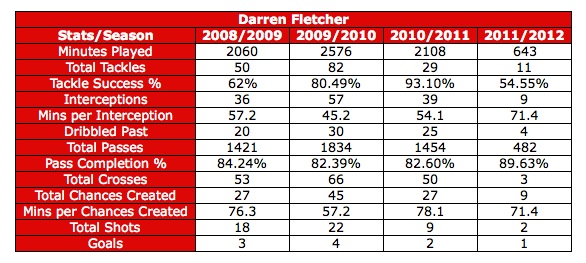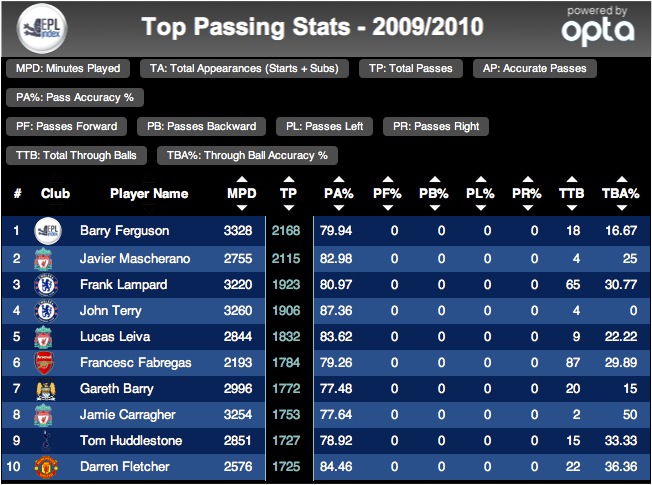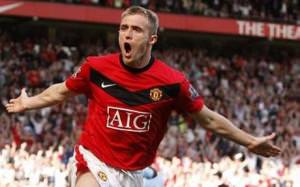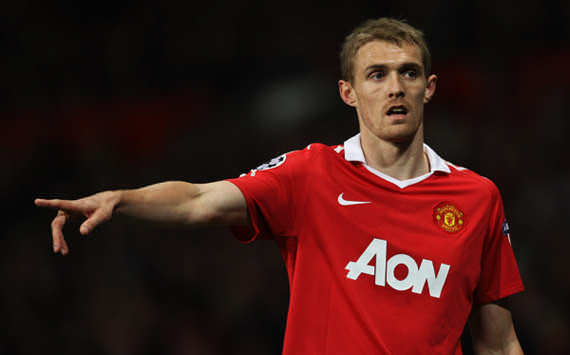The recent news that Darren Fletcher has been named as part of the 22-man squad for the Champions League created an air of excitement amongst the United faithful.
Having taken an extended break from football to recover from ulcerative colitis (a form of inflammatory bowel disease), there was a buzz of optimism when Fletcher returned to training at the start of the season. With his imminent return to first team football within the horizon, let’s take a look at Fletcher’s contribution over the years to see how he has transformed into a key player for United, and what role he would he could possibly play this season.
From Bit Part Player to Key Player
Since his debut against Basel in March 2003, Fletcher has gone on to make more than 300 appearances for United. While he was used infrequently in his younger days, it was only in the latter seasons that his talent and qualities were fully recognized. He won over even the most skeptical of United fans with a series of outstanding performances, especially in the important and big games. The fact that Sir Alex Ferguson plays Fletcher in the big games shows how highly regarded he is in the club.
“Fletch underlines what United are all about. He is a world-class player and I wouldn’t swap him for any other in the world.” – Wayne Rooney
To date, his most famous goal was against Chelsea in November 2005, where his headed goal ended the then-champions’ 40-game unbeaten run. He also scored a memorable double in a dramatic 4-3 thriller against Manchester City in September 2009. In addition, he was an essential part of the Champions League winning squad in 2008 where he was an unused substitute in the final.
Having firmly established as a vital first-team player in recent years, let’s have a look at the summary of his performances over the seasons.

From the table, the 2008/2009 season was a breakthrough year for Fletcher as he got significantly more game time than previous seasons. The season also signaled Fletcher’s blooming midfield partnership with Michael Carrick. It resulted in him signing a three-year extension to his contract.
Building on the previous season, the 2009/2010 campaign was arguably Fletcher’s best season in United. His stats in that season are far superior to the previous years. From playing in defence during an awful injury crisis to contributing a significant amount of chances created (45 chances created as compared to only 27 the season before), he was one of United’s most consistent performers. As seen from table 2 (below), he was one of the top 10 passers (total overall passes) in the whole of the Premier League in that season. He proved he could more than match with the best players from England as well as Europe.

Interestingly, in the 2010/2011 season, his statistics started to decrease steadily. From having a mere 29 tackles to creating a chance only once every 78.1 minutes, it was quite a far cry from his admirable performances in the previous season. It was mainly because his season was blighted by injury, and there were serious worries as he started losing weight due to a virus. Although he did recover for end-of-season games, he did not return back to his best.
That was an ominous sign because in the 2011/2012 season, Fletcher lasted only 8 games before he was given his extended break from football to fully recover. His last game was a 2-2 draw against Benefica on 22nd November 2011 in the Champions League.
Looking Ahead

So just how big a role will Fletcher play this season?
It’s difficult to say, really. As it stands, United already have centre-midfield players like Carrick, Scholes, Cleverley, Anderson, Giggs and even Nick Powell fighting to get into the first team. It’s hard to see Fletcher overtaking these players and come straight back into the thick of the action, especially after coming back from a rather serious illness. However, if he can bring back his form from the 2009/2010 campaign, don’t bet against him playing a key role for this season.
We shouldn’t forget Fletcher’s versatility as well. As seen in the 2009/2010 season, he can play multiple roles such as a fullback position or even in the centre of defence. Should a defensive injury crisis hit United yet again (fingers crossed), there is another outlet for Ferguson to select from, apart from relying only on Carrick yet again to slot into the defence.
It will be interesting to see what role Sir Alex Ferguson has for him, especially in the latter part of the season where the games come thick and fast.

